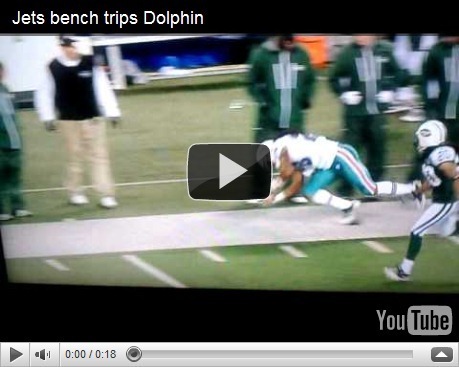Matthew Dicks's Blog, page 649
December 15, 2010
Should I be a little nicer in 2011?
I've started working on my New Year's resolutions for the coming year.
Some of them will simply be repeats of the previous year. Any goal that I did not achieve in 2010 that I still want to complete will be added to the list.
Sadly, there will be quite a few.
But there will be new resolutions as well, and the only requirement is that each of these resolutions be definitive and measureable.
Which brings me to my the newest resolution that I am considering:
Be a little nicer.
I know. Can you believe it?
I'm not entirely convinced that this is a goal worth seeking in 2011, but some recent events have caused me to wonder.
Last week a professional singer and friend of mine dedicated a song in one of her performances to her husband, and a mutual friend posted a video clip of the performance on Facebook, declaring it our friend's Christmas gift to her husband.
The comment I posted beneath the video:
I'd rather have an iPad.
On Twitter, someone recently asked followers to post any home remedies for a snoring spouse. Even though I actually have a home remedy that worked for me, my response was still:
Separate bedrooms or divorce.
In preparing to launch a new imitative last year, a colleague confided in me that I was a source of concern for their committee, because I tend to be disagreeable and difficult deal with. When I expressed my enthusiasm for the imitative, there was a collective sigh of relief, because the committee was expecting an acerbic and dismissive attitude from me.
See what I mean? I'm can be really mean at times.
As a quick illustration, I just jumped over to Facebook and read every status update on my main page. of the 22 updates, I had something mean or snarky to say about ten of them, including one of my own status updates.
I was going to be mean to myself.
This is the kind of thing I do. I hear or read a genuine expression of love, kindness or joy and my first and most preferred response is some snarky, cruel, or mean comment.
And so perhaps 2011 will be the year that I try to be a little nicer.
And please note that I don't want to become nice or nicer or a lot more nice.
Just a little nicer.
A smidgen nicer.
But here is the problem:
How would I measure such a goal?
Just when I was ready to abandon this goal for a lack of measurement, I had an idea:
Survey Monkey, a free, online, survey generator.
I could survey my readers and friends once a month in order to determine if I have become a little nicer. Leave the determination of my success in the hands of the people.
It sound both fun and terrifying at the same time.
Any thoughts on this plan, or do you have any other resolutions that you'd like to suggest?
If so, please do.
I only have 15 days left to post my list and get to work, and based upon my lack of success in 2010, I have a lot of work to do.
December 14, 2010
My treatise on tipping
A reader recently asked me to comment on the process of tipping, hoping that I might be able to provide some insight on the subject.
She must have noticed that I am rarely bereft of an opinion on any matter.
My basic philosophy on tipping is to always round up and always be willing to throw in an extra dollar or two if the service was satisfactory. The extra dollar will always mean significantly more to a server than it could ever mean to you, both in terms of straight monetary compensation but also (and more importantly) as an acknowledgement of a job well done.
When given the opportunity to compliment a person on their work performance in such an easy and cost effective way, take it.
This rule does not apply, however, to situations in which tipping is optional. The tip jar at your local Dunkin' Donuts or a Starbucks is a good example of this.
Tip jars of this kind are optional and should always be treated as such. Traditional wait staff are paid considerably less than minimum wage because of the expectation of a tip following service. In order for these people to earn a living wage, tips must be given. A counter person making your coffee at the local Starbucks or a sandwich maker at your neighborhood Subway is earning at least minimum wage and likely higher, and therefore you should not feel the obligation to tip.
Also, these tip jars seem rather arbitrary in their deployment, and they strike me as unfair and unjustified attempts to capitalize on the tipping that takes place in full-scale restaurants.
The cashier at Target, for example, probably makes less money per hour than the average Starbucks employee, and yet both serve a similar function. But you would never see a tip jar adjacent to a cash register at Target.
Similarly, counter employees at dry cleaners, video rental stores, gas stations and the like also earn the same kind of wage as your average Dunkin Donuts or Starbucks employee, yet they are also not asking for tips either. For some reason, the presence of food seems to signal the opportunity for a tip jar, and this is simply not the case. Pouring a cup of coffee or handing me a scone is hardly equivalent to the work that wait staff do in full service restaurants, and it is not all that different than the service that a dry cleaner counter person offers.
In addition, tip jars do not typically afford the customer the opportunity to signal to the counterperson that the job was well done. Dropping your change into a tip jar is hardly an indication of appreciation, and the money accumulated in the jar is often divided amongst several other employees, preventing you from acknowledging any single person for their service and sometimes forcing you to offer appreciation to the undeserving.
All that said, I am not opposed to dropping money into a tip jar, especially if you are a regular customer who is treated well on a daily basis. But this should be a choice that a person makes and never an obligation.
These people are being paid for their efforts in accordance with the minimum wage standards. Tradition wait staff are not.
As I've written about in a previous post, my evil step-father taught me that when the service is especially poor, leaving a single penny is more insulting than leaving no tip at all.
Not surprising, this is terrible advice.
I am strongly opposed to not tipping a waiter or waitress regardless of the service, knowing that service is also dependent on many other factors beyond the control of the wait staff and keeping in mind that these people make less than minimum wage.
Tipping 10% rather than 20% seems like a more reasonable response to poor service.
Not tipping at all, or tipping a single penny, is simply unacceptable. If your service was so poor as to warrant the absence of a tip, you should have asked to speak to a manager long before it came time to calculate a tip.
Leaving without tipping is the coward's way of handling the situation. It's the passive-aggressive, indirect, almost anonymous means of expressing dissatisfaction, and it is typically done in lieu of a frank and honest discussion about the service rendered.
Passive-aggressive, indirect, and anonymous are three of my least favorite qualities in any approach to communication.
They are the coward's way out.
And I'm not surprised that it is the kind of thing that my evil stepfather would have advocated. Thankfully, my evil step father was fairly simple to decipher.
I learned to do the opposite of what he said in almost all circumstances, and that policy has served me surprisingly well over the years.
December 13, 2010
My kingdom for an orange
Did you know that human beings and guinea pigs are the only mammals on the planet that cannot synthesize vitamin C?
Every other mammal on Earth can produce vitamin C on their own.
We need oranges or we die.
This strikes me as rather ironic considering that human begins are also the only mammals on the planet who found themselves at sea for long periods of time without access to fresh fruits and vegetables.
Think about it:
The only mammal that cannot produce vitamin C is also the only mammal that purposefully and unknowingly spent extended periods of time away from its only source of vitamin C.
A cruel God or a cosmic joke?
The deception of The Nutcracker
You know what's the problem with The Nutcracker?
It's still a ballet.
While it's true that my wife adores The Nutcracker and did so as a child, most children are surprised to realize upon seeing The Nutcracker for the first time that it amounts to little more than a boring dance recital.
You can almost hear their collective bewilderment as they begin to squirm in their seats and wonder why they ever thought a ballet about a kitchen appliance was going to be good:
What the hell? I thought this was supposed to be fun. Like a Rudolph claymation special, only in real life?. This is just stupid dancing.
For reasons that ultimately ruin a perfectly good Sunday afternoon, The Nutcracker is consistently portrayed as something better and more exciting than your average trip to the ballet. As a result, children around the world pile into theaters with excitement in their eyes and hopefulness in their hearts.
Ten minutes into the performance, most are wondering what the hell happened to this supposed masterpiece of childhood entertainment.
Nothing happened to it. It's ballet.
It's a ballet about a kitchen appliance.
Nutcracker or not, it's still boring.
December 12, 2010
More classless New York Jets behavior
Look. Another New York Jet jackass.
This unidentified New York Jets staffer tripped Miami Dolphins player Nolan Carroll as he was running out of bounds during a kickoff in today's game.
[image error]
Video footage of the incident can be seen here, though the NFL may have the clip taken down soon:

This is coming from the same organization that lied about offering a Virginia train conductor Keith Fitzhugh a position on the team earlier this week after Fitzhugh rejected their offer.
Classless times two.
Wait Wait Dont Tell Me: Near perfection, but not quite
For years, I would contend that I had brought more joy to my wife's world than she had brought to mine.
I have introduced Elysha to Buffy the Vampire Slayer and Battlestar Galactica, two of her favorite television shows of all time.
I tantalized her palette with the sublimity of macaroni and cheese with hotdogs.
I took her to her first NFL and Major League baseball games, as well as her first foray into go-carting.
I had given her the world.
Then it occurred to me the other day that it was Elysha who first convinced me to listen to NPR's Wait! Wait! Don't Tell Me! even after I scoffed at the idea of listening to a game show again and again.
Wait! Wait! Don't Tell Me is just as sublime as macaroni and cheese with hotdogs.
It's almost perfect.
My main complaint about the program (other than Carl Castle's annoying use of the word outright) is the final "Prediction" segment of the show, when the three celebrity panelists are asked to come up with a joke pertaining to a topic addressed earlier in the show.
This weeks question:
"In a moment, we will ask our panelists what President Obama's next big compromise will be."
Except when listening with Elysha, I never listen to this final segment, because in comparison with the rest of the show, it is consistently the weakest in terms of humor and wit. And yet it serves as the conclusion to the show, leaving listeners on a low note week after week.
Not to mention that the game has already ended, a winner has been declared, and congratulatory applause has been rendered.
This is when games are supposed to end.
At the end.
I realize that the panelists are only playing for pride, but within the architecture and artifice of the show, the declaration of victory should represent the completion of the show. There is no reason for the winner and the two losers to then be required to come up with one more bit of witty humor to end the program.
It was already over.
It's a flaw, Peter Segal. And it needs to be fixed.
Thankfully, I listen to the show in podcast form and simply press the stop button during the winner's applause.
Jets handle rejection like a spurned teenage snob
Is it wrong for me to take great pleasure in the fact that Keith Fitzhugh, a free-agent safety who has played in the NFL as recently as last year, turned down the New York Jets offer to join the team in order to keep his job as a train conductor?
Fitzhugh said that with the precarious state of the economy and his financial responsibility to his disabled parents, he opted for the job security that his current position offered rather than the uncertainty of an NFL roster spot.
It makes sense, and you have to admire the guy for placing his family before his pigskin dreams, but there is something poetic in the fact that he turned down the Jets, a team that I despise.
Making the story even better was the Jets denial that a contract offer had been made to Fitzhugh, even though The Associated Press, The Newark Star-Ledger, ESPN and Fitzhugh himself reported otherwise.
Is the New York Jets organization too proud to admit to being rejected by a Virginia train conductor?
Are they too high and mighty to acknowledge that someone would choose the Norfolk Southern Transit Corporation over them?
This strikes me as similar to Kim Jong-Il's claim that he scored eleven hole-in-ones the first time he played golf.
Both are too proud to admit that they are not infallible.
As my friend, Shep, points out, the Jets should have countered Fitzhugh's rejection with the offer of a permanent position in their public relations department when and if he was cut from the team, thus spinning this into a feel-good story for the organization and giving Fitzhugh another shot at the game he loves.
Instead, the Jets end up looking like a bunch of holier-than-thou jackasses and liars, which is what I would have expected from an organization that places someone like Rex Ryan in charge.
December 11, 2010
If my nightmares werent already consumed by armed robbers and gunshots to the head, this would most assuredly be my nightly psychological torment
Bare-breasted behemoths and buxom babes not needed
Romance novels are selling exceptionally well in the e-book market, rapidly becoming the best selling genre in the format. This dramatic increase in market share has been attributed to the lack of cover art with an e-book, allowing romance readers to indulge without having to advertise their literary tastes to the world.
"They are not always something that you are comfortable holding in your hand in public," said Sarah Wendell, blogger, author and romance enthusiast.
I find this tragic on two fronts:
1. Are there really enough many adults in the world so insecure about exposing their reading habits to the general public that they would gravitate towards a medium that allows them to read in stealth mode and cause a noticeable increase in sales?
According to the New York Times, romance readers are predominantly women ages 31 to 49. Aren't these women, and all romance readers in general, confident and secure enough at the age of 30 to be themselves, absent any concerns for what others will think of us based upon the book in our hands?
Are there really that many of us still entangled in high school fears and concerns?
And if this is the case, perhaps there is a business opportunity here in the sale of fake book jackets.
Embarrassed about reading Kinley MacGregor's MASTER OF DESIRE?

Why not cover it with the book jacket for Patrick O'Brian's MASTER AND COMMANDER instead?

Embarrassed about reading Stephanie Tyler's COMING UNDONE?

Cover up that lusty romance cover with Wally Lamb's more socially approved SHE'S COME UNDONE:

Ashamed of reading Bronwyn William's GIDEON'S FALL?
[image error]
Hide that chest-baring hero beneath the more somber cover of Edgar Allen Poe's FALL OF THE HOUSE OF USHER:
[image error]
Or perhaps you could simply grow up instead?
2. Why have romance publishers not responded to this apparent reader insecurity by altering the cover art themselves? If the covers for MASTER OF DESIRE or GIDEON'S FALL are too risqué for a large segment of romance readers, why not tone these covers down and allow this wide swath of pathetically insecure readers to walk around with their books without the potential embarrassment that the images on the front may bring?
The romance industry appears to be caught off guard by the response to e-books, and if this is the case, how much money has they left on the table prior to the introduction of the e-book.
And how much is still being left on the table today?
Perhaps it's time to ditch these admittedly ridiculous covers altogether.
December 10, 2010
Scoundrels or capitalists
Forceps are rarely used today, but in the sixteenth century, they were the only hope for mothers whose babies needed to be rotated prior to delivery. Without them, labor could last days and often ended in tragedy.
Sadly, this instrument did not become available to physicians worldwide until 150 years after its invention. The inventor, Peter Chamberlen, and his succeeding heirs kept this bit of technology a secret for more than a century, going so far as to carrying the forceps into the birthing room in a lined box and only be using them once everyone was out of the room and the mother blindfolded.
This all but assured the family's high standing with the royalty of England, who relied on the Chamberlen's obstetric expertise for years.
I understand the desire to profit from your invention as much as possible, and the simplicity of the forceps all but assured that they would be copied once seen, but how many mothers and their babies died in the 150 years that the forceps remained a secret?
Doesn't this make the Chamberlen family one of the greatest collections of scoundrels to ever walk the Earth, or am I being hard on this rightfully capitalist-minded family?




